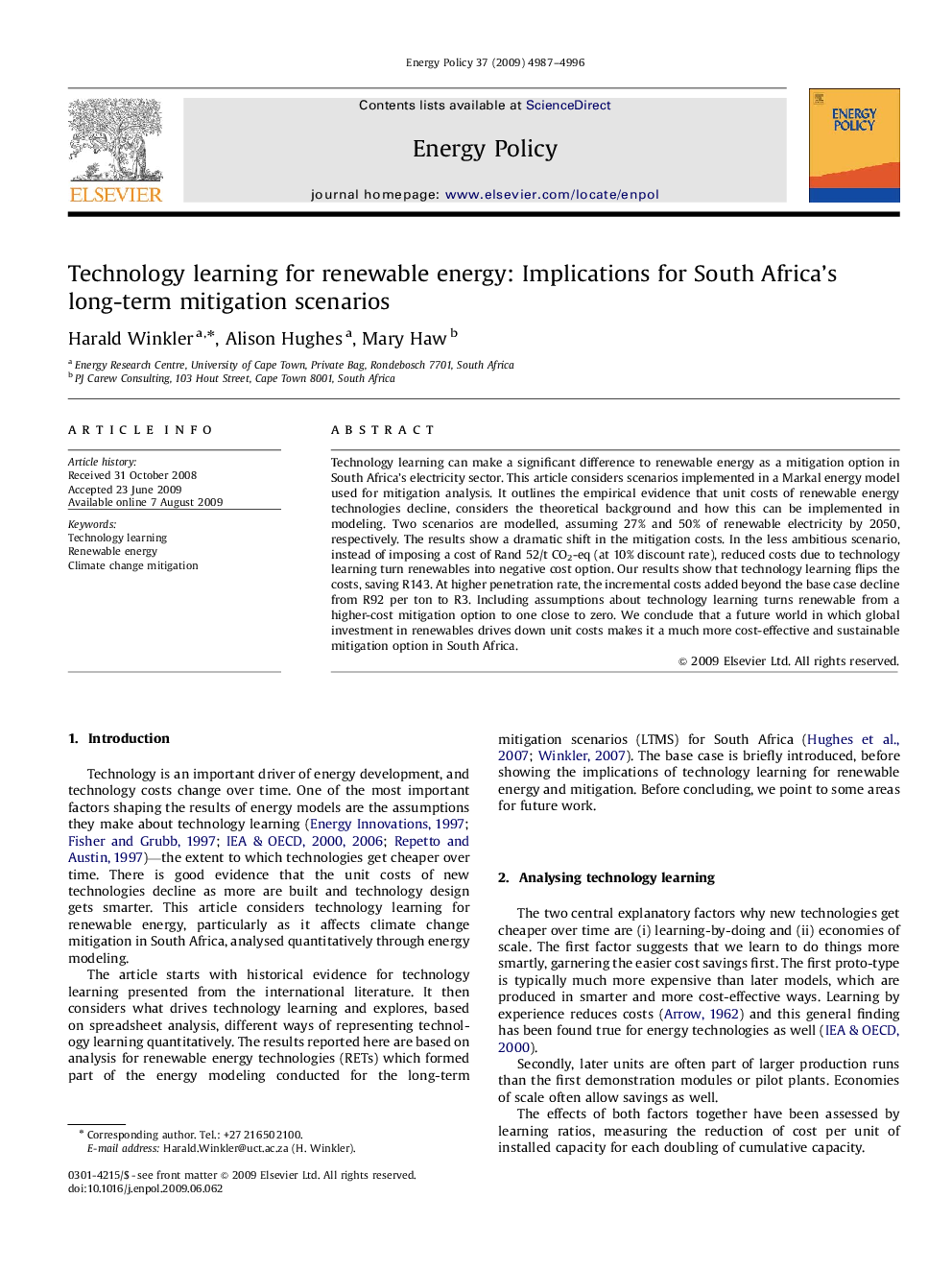| Article ID | Journal | Published Year | Pages | File Type |
|---|---|---|---|---|
| 996657 | Energy Policy | 2009 | 10 Pages |
Technology learning can make a significant difference to renewable energy as a mitigation option in South Africa's electricity sector. This article considers scenarios implemented in a Markal energy model used for mitigation analysis. It outlines the empirical evidence that unit costs of renewable energy technologies decline, considers the theoretical background and how this can be implemented in modeling. Two scenarios are modelled, assuming 27% and 50% of renewable electricity by 2050, respectively. The results show a dramatic shift in the mitigation costs. In the less ambitious scenario, instead of imposing a cost of Rand 52/t CO2-eq (at 10% discount rate), reduced costs due to technology learning turn renewables into negative cost option. Our results show that technology learning flips the costs, saving R143. At higher penetration rate, the incremental costs added beyond the base case decline from R92 per ton to R3. Including assumptions about technology learning turns renewable from a higher-cost mitigation option to one close to zero. We conclude that a future world in which global investment in renewables drives down unit costs makes it a much more cost-effective and sustainable mitigation option in South Africa.
